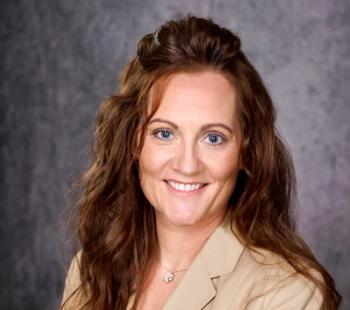
Pushing to expand hospital-at-home programs | Bills and Laws
More health systems have launched programs to provide acute care in the home. Lawmakers are working to ensure those programs can continue.
The skinny
A bipartisan bill has emerged to extend
The sponsors
U.S. Sens. Raphael Warnock, a Democrat from Georgia, and Tim Scott, a Republican from South Carolina, are the prime sponsors of the legislation. Other senators from both parties are co-sponsors of the bill.
Summary
The lawmakers are looking to extend federal waivers that allow hospitals to provide acute care at home. The government eased restrictions on hospital-at-home programs during the COVID-19 pandemic, and lawmakers have approved temporary waivers on those programs. Warnock and Scott say their bill will extend home hospital programs and provide more certainty for health systems to extend them.
Analysis
While more health systems have expanded hospital-at-home programs in recent years, healthcare leaders say some hospitals have been leery of building or expanding those programs without assurance about long-term support in Washington.
As of June 27, 400 hospital-at-home programs have been approved by
Lawmakers most recently extended approvals for telehealth programs, including hospital-at-home programs, in
Hospitals and health systems have been pushing for permanent reforms allowing providers to run home hospital programs (and telehealth programs). At a minimum, health systems have been asking for multi-year extensions.
“This legislation is about protecting access to quality health care, lowering costs for patients, and improving the health and well-being of our family and neighbors,” Warnock, a reverend, said in a statement about the legislation. “I will always work to lower costs and increase health care access for Georgians, and I urge my colleagues to support this bipartisan effort.”
Hospitals tout a number of advantages of providing acute care at home. Patients can be more comfortable in their own surroundings, and they can get more rest in their own homes.
Research in
“The American healthcare system must evolve to meet the needs of the patients in the 21st century,” Scott said in a statement. “Hospital-at-home care provides better outcomes for patients while reducing costs. This legislation ensures that successful programs like this can continue to serve families across South Carolina and the nation.”
Kyle Zebley, senior vice president of public policy at the American Telemedicine Association, tells Chief Healthcare Executive® that there is broad, bipartisan support for hospital-at-home programs and telehealth in Washington. He says it’s likely that lawmakers will approve another extension for home hospital and telehealth programs, but it could be a temporary extension.
Four other senators have signed on as co-sponsors of the legislation: U.S. Sens. Marsha Blackburn, a Tennessee Republican; Tina Smith, a Democrat from Minnesota; Thom Tillis, a Republican from North Carolina, and Sheldon Whitehouse, a Democrat from Rhode Island.
The legislation would also call for the U.S. Department of Health & Human Services to conduct a study of hospital-at-home programs and their outcomes, readmission rates, mortality rates, and length of stay.
Late last year, it appeared that lawmakers were on the cusp of a long-term extension of waivers for hospital-at-home programs. Lawmakers had drafted provisions in a broader spending package that
- Read more:
Telehealth gets a win in Trump’s tax package






























